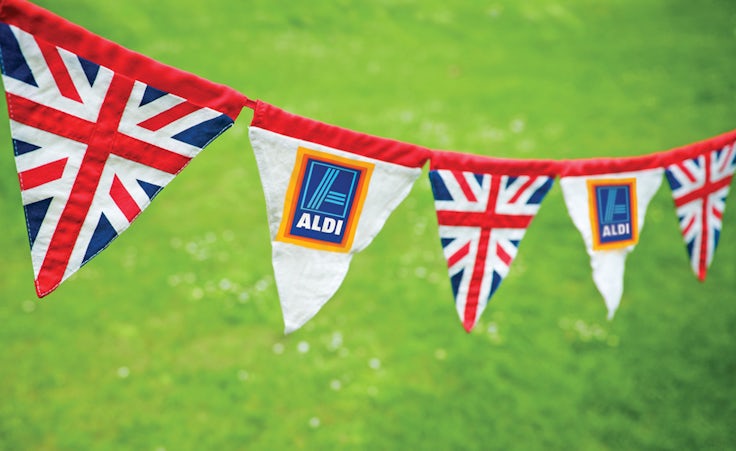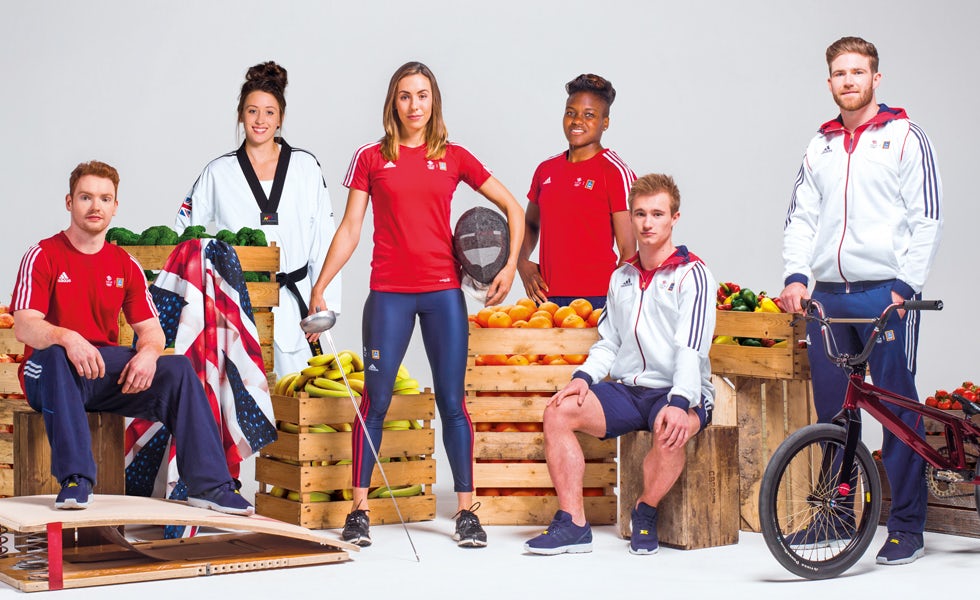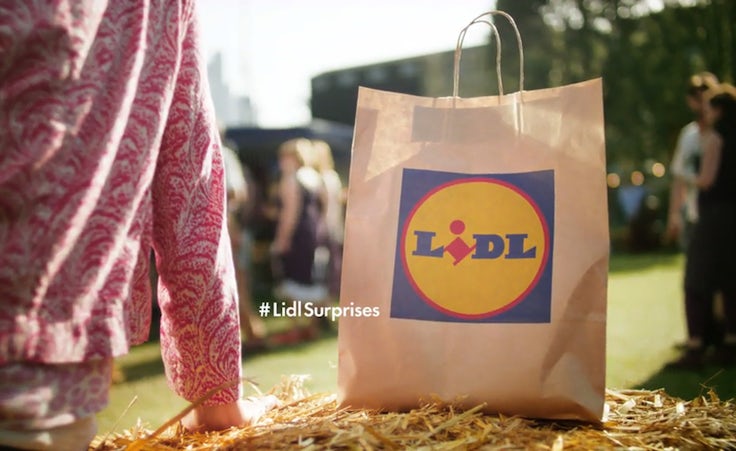Why Aldi is celebrating its Britishness
Marketing director Adam Zavalis explains why the German discounter is focusing on its contribution to British consumers.


Aldi is not the first brand you would expect to sponsor the British Olympic team, but as it embarks on a year-long campaign around its support of Team GB ahead of the Rio de Janeiro Olympics in 2016, the German-owned supermarket is eager to push its British credentials and tell the story of its contribution to the UK and the British consumer.
Speaking to Marketing Week on the launch of its sponsorship activity, which Aldi calls ‘Championing the Great’, marketing director Adam Zavalis reveals why the supermarket could have done a better job of telling the story of its investment in the UK since opening here in 1990 and why Aldi’s relevance to Britain will play a bigger role in its future marketing.
“We are foreign-owned but we are to all intents and purposes a British company that has been here [for 25 years] and understands the British customer,” says Zavalis.
As Aldi celebrates a quarter of a century in the UK, it is reflecting on its contribution to the UK. The supermarket hopes that supporting British athletes training for the 2016 Olympic Games presents an opportunity to tell consumers about what it has done and will continue to do for the country.
Zavalis believes the Team GB sponsorship will enable people to “understand Aldi’s story” and why it is “a true supporter of the British economy”. He says the aim is to champion not only the athletes but also its suppliers, some of which have been working with the supermarket since it opened, and “the great British consumer” as well.
Emphasising Aldi’s Britishness
The campaign kicks off this month promoting Aldi’s ‘fresh, affordable, Great British food’. People up and down the country will see the colours of the British flag turn into mushrooms, blueberries and tomatoes as Aldi makes the most of the grocery association; it is the first official supermarket partner of Team GB.
In addition, there is a timeline of marketing events over the next year including activity with six of the Team GB athletes that will appear in TV, print and social media, as well as other branding initiatives.
The discounter is also investing £600m in the UK over the next two years. At present, it employs 26,000 people and will create 35,000 new jobs as it develops its head office and opens new stores and distribution centres across the country.
The British Olympic Association (BOA), which runs Team GB, believed Aldi was a “natural fit on a few levels”, according to Zavalis. For example, it “saw a company with a HQ in the Midlands, headed up by a British CEO and a British-based buying team”. Aldi being “on the up” and a “winner” also cemented the partnership, he claims.
The internal effect of sponsoring Team GB is just as powerful as the external and presents a “massive opportunity”, says Zavalis. “It inspires all of our people to rally behind and support
a common cause about healthy eating.”
Aldi’s campaign team has been touring its regional headquarters to do roadshows about the Team GB sponsorship, taking athletes to do talks about what will be achieved through the partnership. Aldi even had staff competing on static bikes and rowing machines against Olympians.
The supermarket is also looking to tell an “efficiency story” about its logistical operations, according to Zavalis, though he admits it is usually one that few people tend to engage with. To inject excitement Aldi took on the job of kitting out the athletes for the European Games in June using a venue designed to look like a store, complete with tills. It created a “more engaging experience for the athletes” as they collected their kit from Aldi staff, who also helped them pack it for the trip. The supermarket will do the same again prior to the Rio Olympics.
Standing apart from rivals
Zavalis admits that staff have had to work harder to ensure the Team GB partnership is effective but that they are motivated to do so because “they have the opportunity to work on something that will truly differentiate us from everyone else”. Aldi’s effort to create this point of difference from supermarket rivals comes at a key time in the evolution of the sector.
As the big four supermarkets in the UK – Asda, Sainsbury’s, Tesco and Morrisons – battle it out over price and continue to decline in terms of growth and market share, the rise of the German discounters Aldi and Lidl is consistently evident in grocery market data.

Kantar Worldpanel’s figures shows that in the 12 weeks to 19 July Aldi grew by 16.6% and Lidl by 11.3%, which resulted in both achieving new market share highs of 5.6% and 4.0% respectively. Aldi’s growth is not showing any signs of reversal, though this most recent period of growth is its slowest in four years.
Waitrose was the only other supermarket to grow its share in the same period, with sales rising by 3% and market share up to 5% – an increase of 0.1 percentage points compared with last year.
Overall growth in the sector remains “sluggish”, according to Fraser McKevitt, head of retail and consumer insight at Kantar Worldpanel. Supermarkets are at 0.6% growth overall but the discounters are growing at around 15%. Aldi would be pleased with his analysis that discounters have “entered the mainstream”.
McKevitt adds: “It’s no longer true to say that they are places only for people with less money to shop – it’s representative of the UK population. The [products consumers were buying] might have been restricted to a few categories [in the past] but now people seem to be buying across the store.”
However, the big four are not going to disappear. McKevitt explains that even though the discounters are starting to become more mainstream, they cannot fully do so yet because of the restriction on product ranges. He adds: “British shoppers like promotions. They like the excitement of seeing what is on deal on their favourites brands – discounters barely stock brands.”
Evolving price-led marketing
In the past, Aldi’s marketing story has been about price, with campaigns such as ‘Like brands. Only cheaper’ and ‘Swap and Save’. But with plans to open 1,000 new stores by 2022 its marketing has to reflect an ambition to “tell a broader message that you can do a full shop at Aldi, not just your one-off items”, says Zavalis.
https://www.youtube.com/watch?v=sivRUs0j-P8
However, prices stay low because ranges are kept relatively small, which is why in order to attract those looking to do a full shop Aldi will be focusing the product message on its fresh produce. It is an approach that naturally dovetails with the emphasis on Britishness, as it allows the brand to talk about its sourcing.
“It’s important to explain our contribution to the British economy story but also what we are doing for British consumers,” explains Zavalis. “The mission has always been to provide every person and family in the UK with access to fresh, affordable, healthy food.”
He believes the message will be a key differentiator in the supermarket wars, championing quality and fresh fruit, vegetables and meat, while competitors are always talking about price cuts.
“Telling the fresh story is important because that will resonate with the British public,” says Zavalis. He adds that showing Olympic athletes and the link to fresh produce provides an “authentic narrative”.
“If these elite athletes are consuming healthy food to help them on the biggest stage in the world, then hopefully that sends a message that it is good enough for families up and down the country,” he explains.
The supermarket has already made a start by being the first supermarket to sign the National Farmers’ Union’s (NFU) Fruit and Veg Pledge at the end of July. This seeks to “improve relationships and balance risk between retailers, intermediaries and growers” and sets out “behaviours and commitments that the supply chain should aspire to, in order to achieve a productive and profitable British horticulture and potatoes sector”.
However, Aldi is not moving away from a price-led message altogether, as this is why the discounter has resonated with consumers since the recession. The message about its fresh
British produce being affordable is part of the new campaign.
“Price is a key message for us,” says Zavalis “It’s within our DNA. We will always talk about price because it is part of the value equation.”
However, the marketing director does admit that if everyone is only talking about one subject, there is the potential for the consumer to get confused.
“You have to be careful you don’t get drawn into it but you have to stay on track with what your message is. Competitors are going to do different things – it’s a very fertile ground but we like competition. Hopefully our job at Aldi is to stay ahead of rivals in everything we do, including marketing.”






